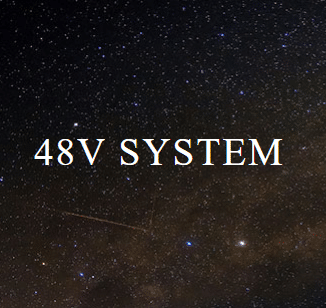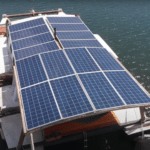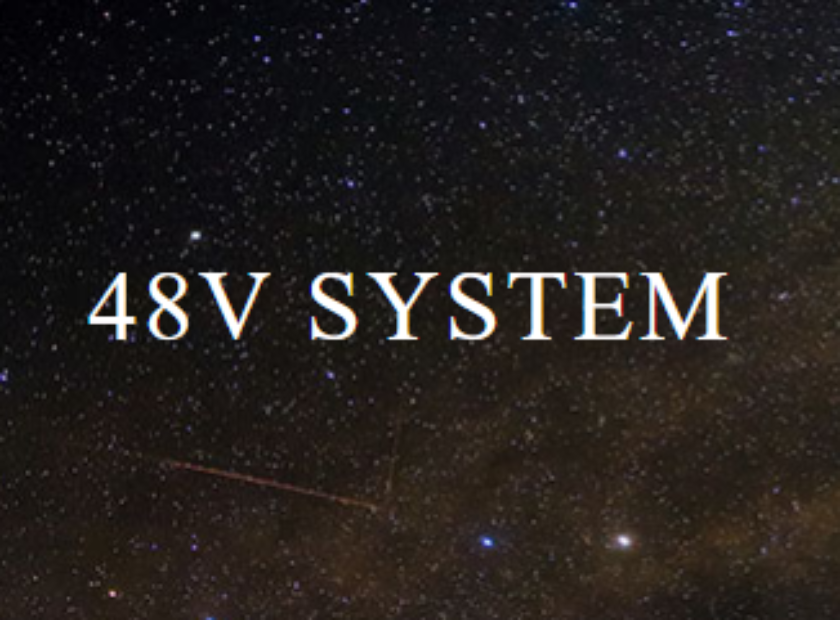What are the advantages of a 48VDC over a 12VDC system?

In the dynamic realm of solar energy, the choice between a 48V and a 12V system can significantly impact the efficiency, safety, and scalability of your power setup. Let’s delve into the advantages that make the 48V system stand out and why it might be the key to unlocking a more robust and future-ready energy solution.
Understanding the 48V System:
Before we explore the advantages, let’s grasp the essence of a 48V system. While 12V systems have been prevalent in the past, the 48V system offers a leap in technological advancement, providing a more versatile and powerful alternative.
Advantages of a 48V System:
**1. Higher Efficiency:
- Direct Power for High-Voltage Appliances: 48V systems deliver full power to high-voltage appliances, ensuring they operate at peak efficiency. This is particularly beneficial for energy-intensive devices.
**2. Safety:
- Operates Appliances Safely: Running at a higher efficiency while using fewer amps, 48V systems can operate appliances more safely than their lower voltage counterparts. This reduces the risk of electrical hazards.
**3. Cost-Effectiveness:
- Less Expensive Wiring and Batteries: The 48V system requires less frequent increases in current to appliances, resulting in lower backup power requirements. This, in turn, leads to cost savings on batteries and cabling.
**4. Scalability:
- Ease of Scaling: Scaling up a 48V system is more straightforward than attempting to scale a 12V system to meet increased power demands. The scalability of 48V systems is a crucial advantage, especially for larger setups.
Why 48V is the Future of Solar:
As technology continues to evolve, more devices are transitioning to electrical or hybrid models. The 48V system aligns perfectly with this trajectory, providing the energy needed for modern devices without compromising on safety, efficiency, or design.
Renogy, a pioneer in solar solutions, is actively contributing to this future with innovative projects. Keep an eye out for the upcoming 48V LiFePo battery bank and the 48V to 12V converter, promising enhanced adaptability and efficiency.
Conclusion:
Choosing between a 48V and a 12V system is not just about the present; it’s an investment in the future of your energy needs. The advantages of a 48V system, from higher efficiency to scalability, position it as a compelling choice for those seeking a cutting-edge and reliable solar energy solution.
Embark on the journey towards a more empowered and efficient space by embracing the advantages of a 48V system. Your future self will thank you for the upgrade.
- Free Quotes: Click here for a free quote.
- Cutting-Edge Solutions: Stay tuned for Royer Batteries 48V LiFePo battery bank and 48V to 12V converter.
- Customer Service Excellence: Enjoy prioritized customer service and free shipping on qualifying orders.
Power up your space with the efficiency and innovation of the 48V solar system.



Hello powermyhome.ca administrator, Keep up the good work!
I run an rv with 2×170 a/h 48v lithium batteries and 2x 100 a/h 12v lithium batteries(for the house,tv,water pump etc) and a 48v inverter/charger and solar controller, and 900watts of solar, it is great, i can run air/con all day and all cooking is on 230 v
Cheers
Richard
Richard, Great Info!! Cheers!!
To check out our locally assembled batteries Visit https://www.royerbatteries.com/about/
Hi Team!
01_If I have solar batteries to drive 9000W/9kW, do I have to charge those batteries using a solar panel or can I charge them with AC?
02_What is the best way to charge Solar Battery? it is by using solar radiation or using electricity. I intend to run a cafeteria through batteries.
03_Is there an Inverter Controller that can work for charging with solar and electricity if the clouds prevent the sun’s rays from reaching the solar panel?
Hi Wilson,
Great questions! Let me break it down for you:
01_ Charging Solar Batteries:
If you have solar batteries designed to handle 9000W/9kW, you can charge them using both solar panels and AC electricity. Solar panels are excellent for harnessing energy from the sun, providing a sustainable and eco-friendly charging option. However, if you need to charge quickly or during cloudy days when solar radiation is limited, you can use AC power as an alternative source.
02_ Best Way to Charge Solar Battery:
The best way to charge your solar batteries depends on your specific needs. If you’re running a cafeteria through batteries, a combination of both solar radiation and electricity might be ideal. Solar energy offers long-term sustainability, while electricity ensures a reliable backup, especially during periods of low sunlight. A well-designed system can seamlessly integrate both sources for optimal performance.
03_ Inverter Controller for Dual Charging:
Yes, there are inverters with dual charging capabilities. These inverters can efficiently manage charging from both solar panels and AC electricity. In case of cloudy days or insufficient sunlight, the inverter can automatically switch to AC power to ensure continuous charging. It’s a smart solution to address variations in weather conditions and optimize your battery charging process.
Contact us for any more questions 🙂
(778) 651-5255